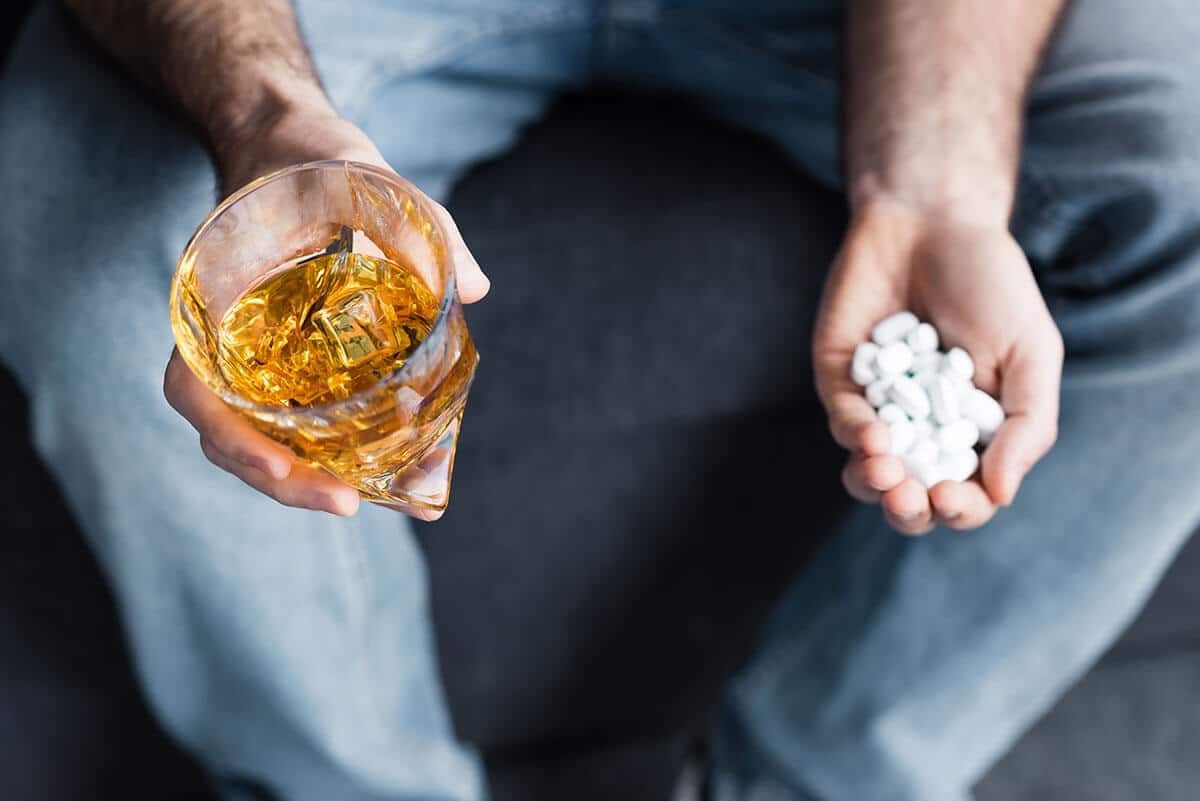
Nothing good comes from mixing alcohol and prescription medication. More often than not, the combination can interact in unpredictable and even dangerous ways. These interactions are common in the case of alcohol and Xanax. What makes the combination of Xanax and alcohol so dangerous? Let’s start by getting to know a bit more about Xanax.
Xanax is the brand name of a popular medication–Alprazolam. It is a member of the benzodiazepine family of drugs (also called “benzos”). Xanax is commonly prescribed to people with anxiety or panic disorders. When someone takes Xanax, they experience a calming sensation and become quite relaxed—even sleepy. In fact, Xanax is sometimes prescribed as a sleep aid. Combining it with alcohol exaggerates the soporific effect.
Like Xanax, alcohol can have a relaxing effect and can cause the user to pass out if consumed in large quantities. Given the similarity of this particular side effect, the combination of Xanax and alcohol can quickly overwhelm a person, leaving them lethargic and eventually unconscious, leading to alcohol addiction.
If someone uses these two substances regularly it will be hard to perform even the most basic functions. Coordination will suffer, energy will dissipate, and motivation will evaporate. Getting out of bed might be the most ambitious thing a person who combines Xanax and alcohol can manage.
Slow and ineffective reactions to outside stimulus is another potential side effect of using Xanax and alcohol. Driving becomes incredibly hazardous. Also, it makes other accidents far more likely. Falling, dropping things, injuries on sharp objects and household appliances and tools—anything that requires thought and concentration becomes a hazard.
Anxiety and depression are two of the main reasons people abuse alcohol and Xanax. Ironically enough, mixing booze and benzos makes anxiety and depression worse. The initial effect may seem liberating, but the potential downsides of alcohol and Xanax addiction—post-high emotional crashes, memory lapses, injuries, and the physical toll of substance abuse—can all lead to severe problems.
Xanax and alcohol can wreak havoc on a person’s self-control. Rather than finding relief from stress and anxiety, the user may lose control of their own emotions, shifting from high to low as the high runs its course.
Becoming cross-addicted to Xanax and alcohol poses serious risks to a person’s health and well-being. Thankfully, support isn’t far away. At LA Detox, we want to fight your addiction with you. With a wide range of addiction treatment programs, we can design a recovery plan to address your specific issues. If you or a loved one is struggling with Xanax and alcohol, we can help. For more information, call us at [Direct] now.
How long does cocaine stay in your system – and why do some people test…
It’s a sweet, syrupy mixture that has been celebrated in rap music for decades. But…
Meaningful discussions of LGBTQ+ and addiction must address the unique challenges faced by members of…
Alcohol abuse can put a person at risk for a broad scope of serious health…
In certain circumstances, stimulants such as dextroamphetamine and Adderall can help a person experience improved…
SMART Recovery is an alternative to AA and NA for people who are looking for…
This website uses cookies.